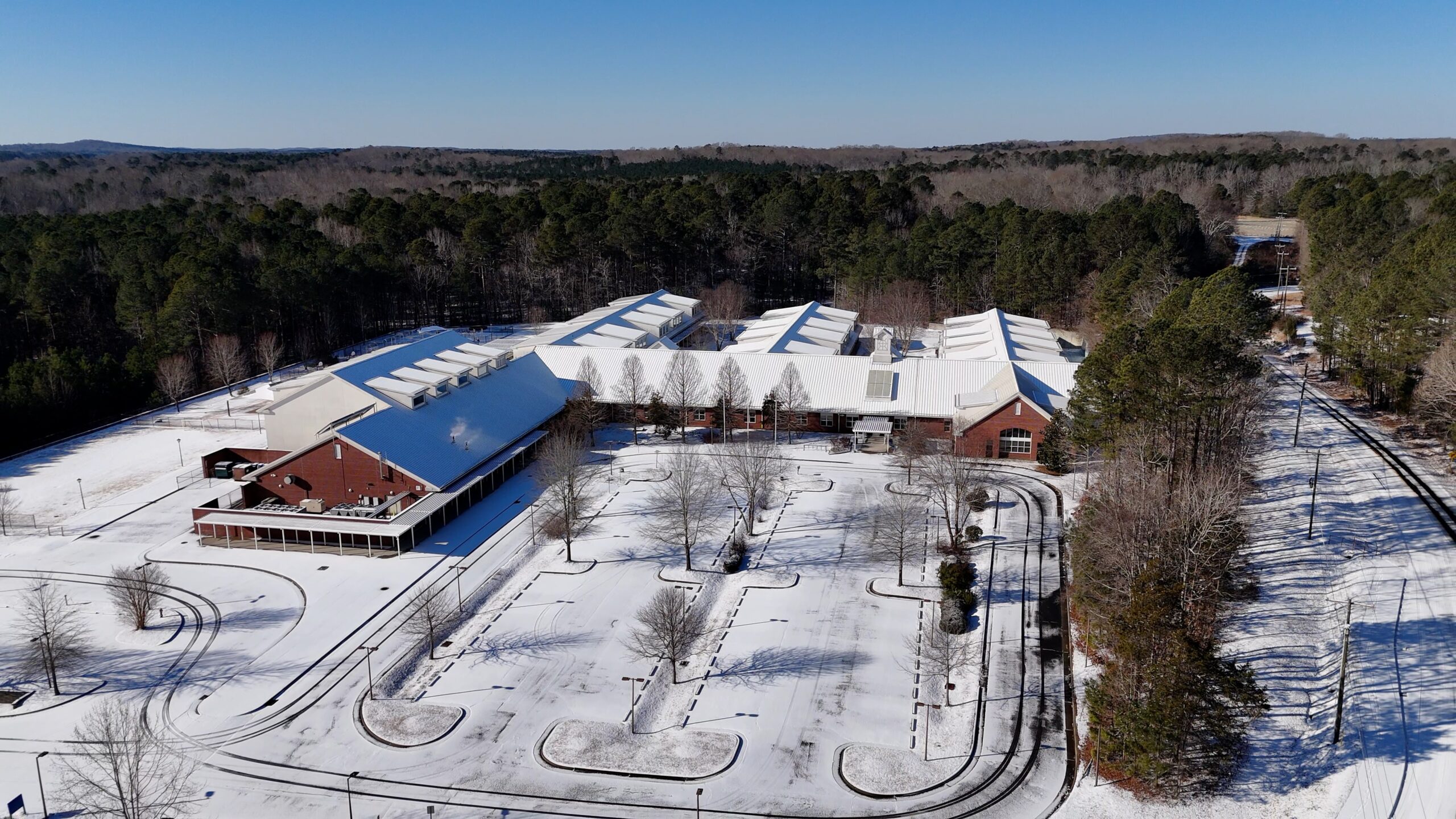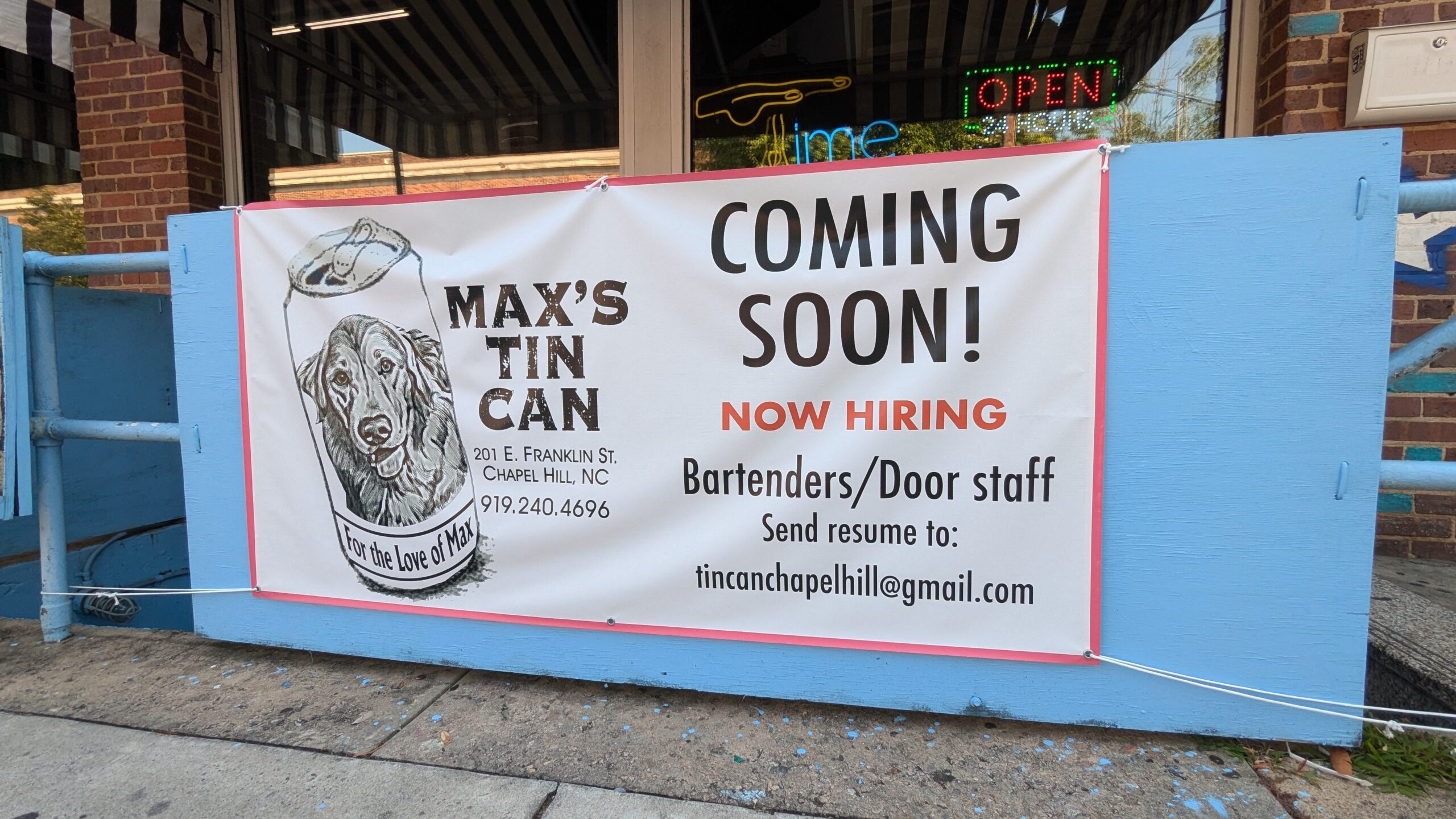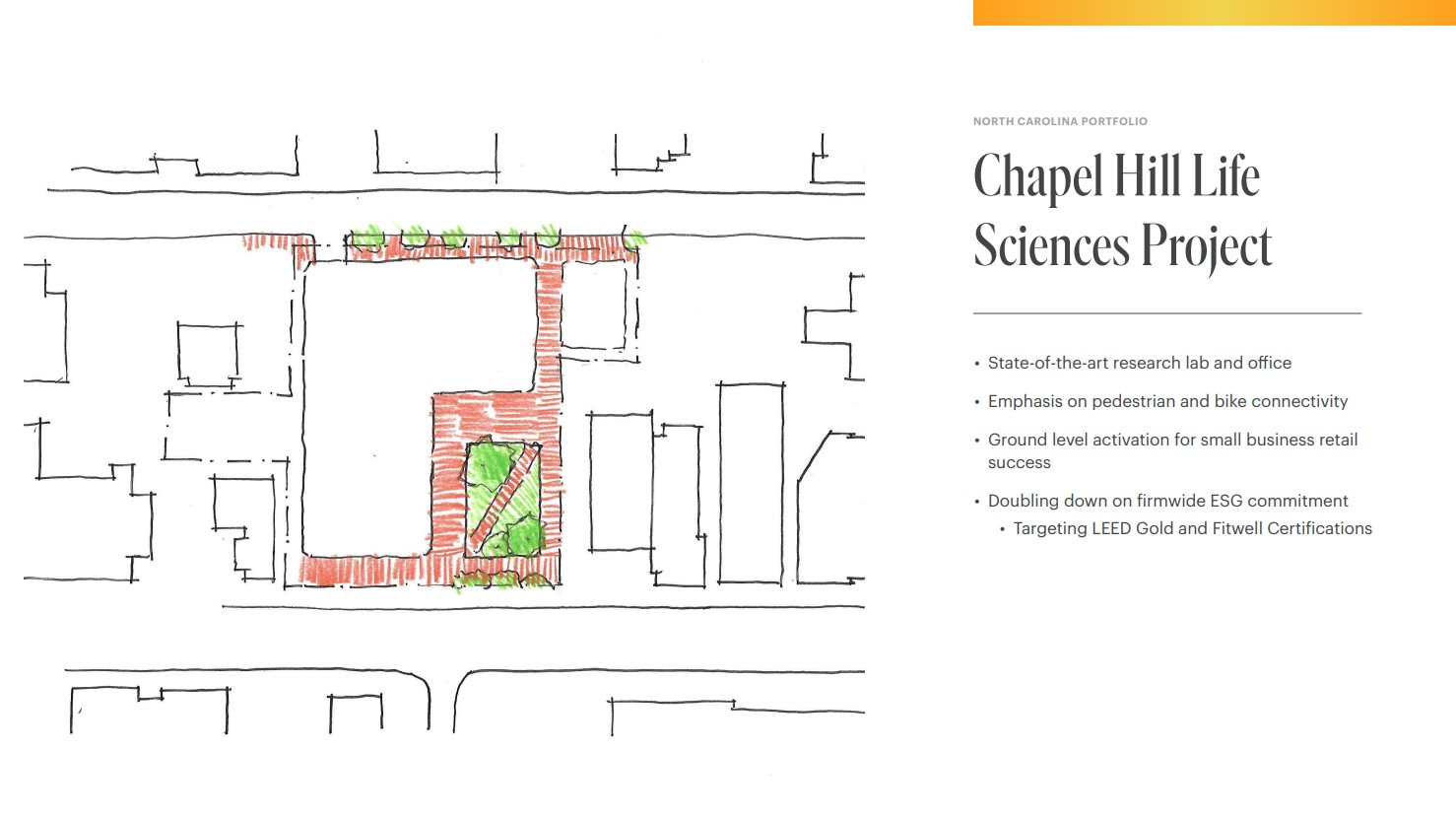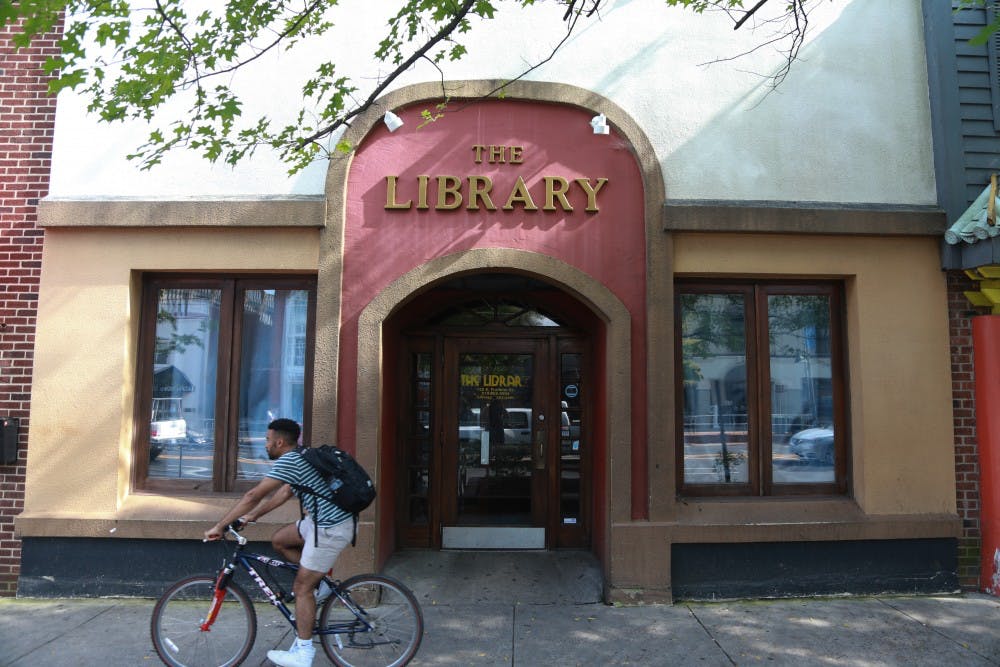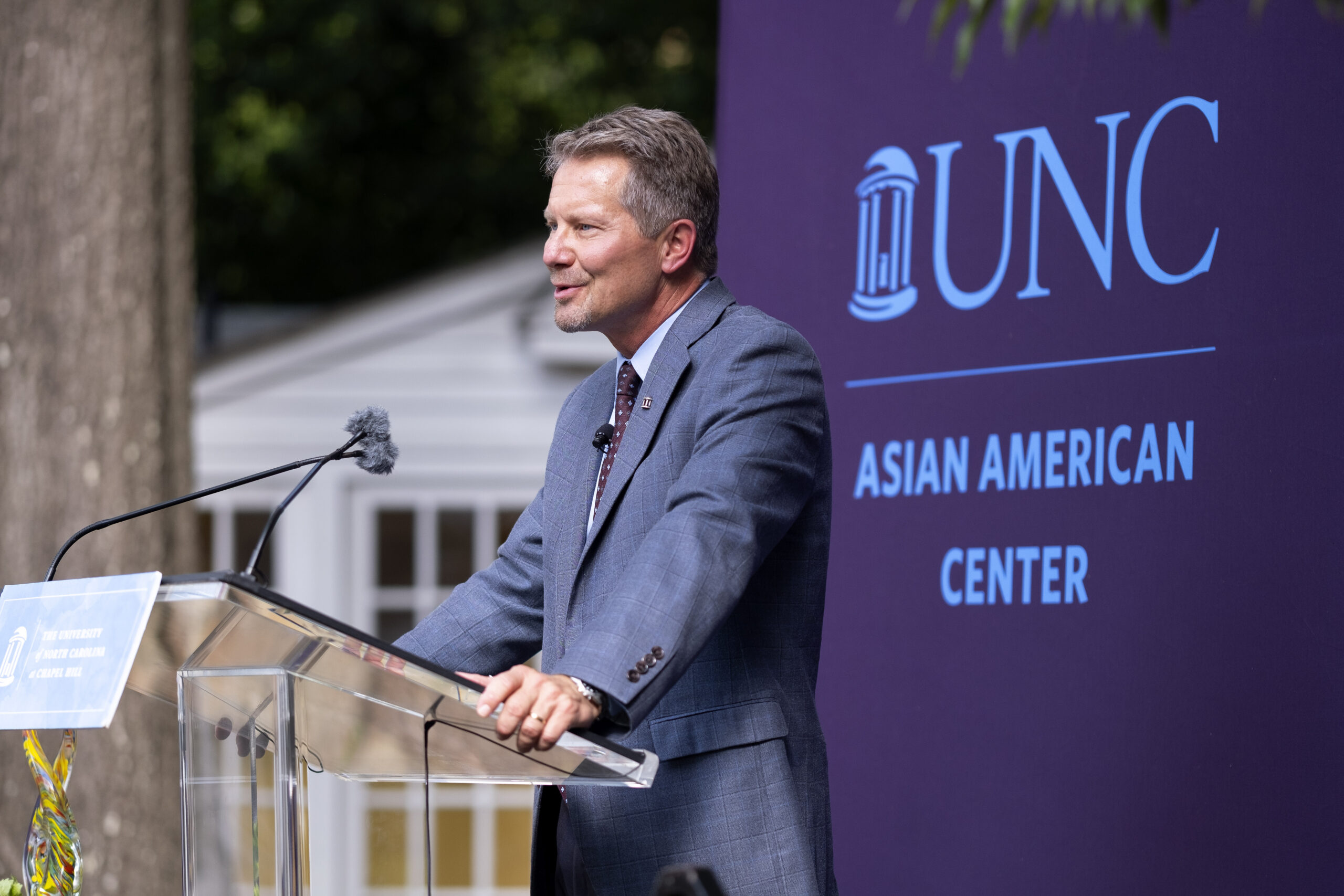As the Town of Chapel Hill assesses how to handle its need for housing with its limited supply, the local government recently turned to a group of leading urban planning consultants for advice. The result is a framework called the Complete Communities Strategy, with the goal of approving a pilot project to try the approach for development and mobility.
On Wednesday night, council members will officially pick between several concepts presented to them a week before.
Jennifer Keesmaat started out the Chapel Hill Town Council work session on November 30 by distributing a map with proposed and conceptual greenway paths outlining how the town could become more connected. The internationally known urban planner described everywhere to everywhere greenways as one option recommended for the town to pursue with the help of federal funding.
While the map was just a conceptual starting point, it laid out a potential vision for the town if they choose to execute projects with the goal of addressing both improving mobility and creating environmentally-sound growth.
“It’s a very powerful idea and it’s a very unconventional idea,” said Keesmaat. “Most people, when they talk about greenways, they’re thinking about a ride on a Sunday afternoon in the sunshine. That’s not what we’re talking about – we’re talking about greenways that you get on and off all day long, they’re foundational to mobility. And [in this concept] we’ve added density near those greenways.”
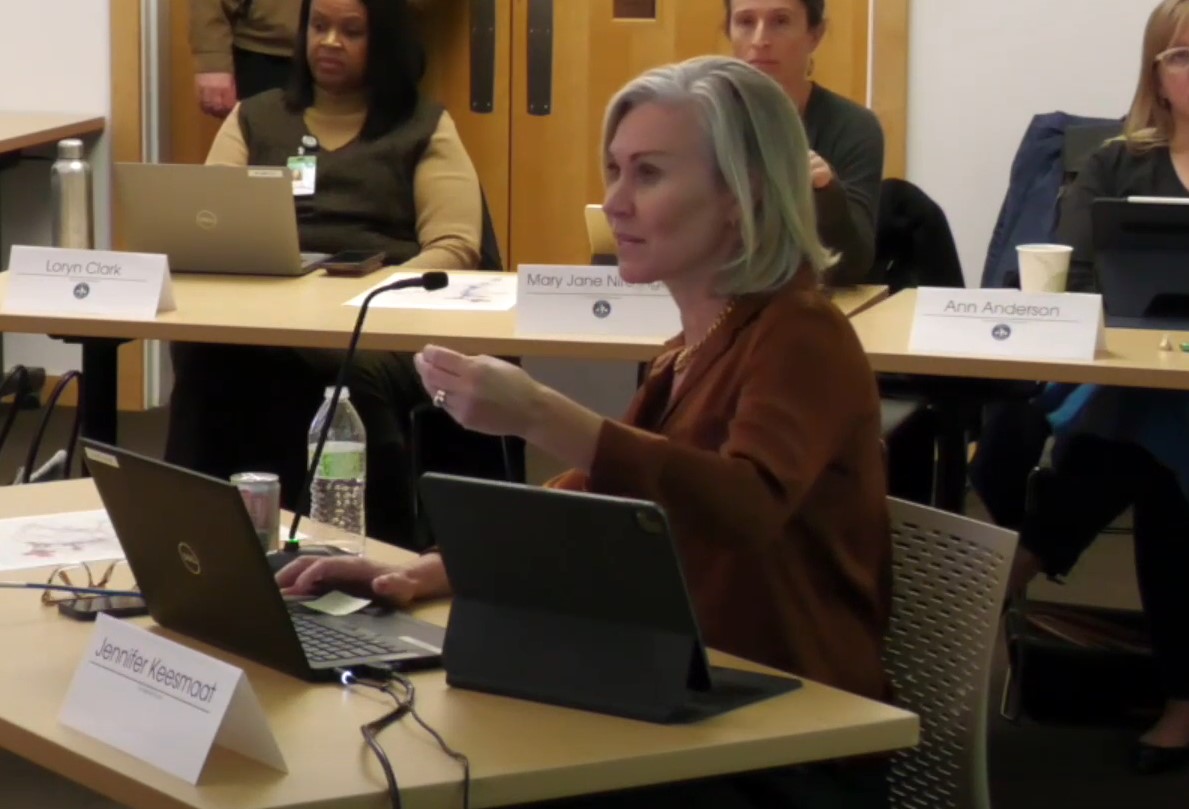
Jennifer Keesmaat, founder of The Keesmaat Group and the former Chief City Planner of Toronto, speaks to the Chapel Hill Town Council on November 30. (Photo via the Town of Chapel Hill.)
Four properties that could bring some added density in the town were part of the presentation on Wednesday. Outlined as part of this Complete Communities initiative as potentially “transformative” development projects, the sites were selected with the goal of being a clear example for the town’s commitment to building more connected developments.
The goal of this consultation with Keesmaat and other top urban planners was for the town government to establish a new strategic plan for growth and selection of projects. The consultant groups used Chapel Hill’s extensive 2021 Housing Report, interviews with residents and study of the town geography. A formal resolution for the Chapel Hill Town Council to consider the Complete Communities framework will be up for a vote on Wednesday night.
The elected officials will also have the chance to decide which of those four projects to pursue. The UNC-owned land at 720 Martin Luther King Jr. Boulevard and the university’s 14 acres off North Estes Drive Extension were the top two sites identified and recommended by the initiative’s steering committee. Land in the Timberlyne Shopping Center and property near the Parkline building off Fordham Boulevard were also included.
Chapel Hill Town Council members largely voiced support for partnering with UNC on redeveloping the two office buildings adjacent to the Midtown Market shopping center along MLK Boulevard. The appeal of a deeper town-gown partnership along the town’s main north-south corridor appealed to nearly every council member who spoke.
That included Council Member Adam Searing.
“It’s on one of our most prominent roads, it’d be a great demonstration,” he said. “Those office buildings are so under-used and that whole area could really be some place. I think if we’re going to go ahead and go for this, is a place to start.”
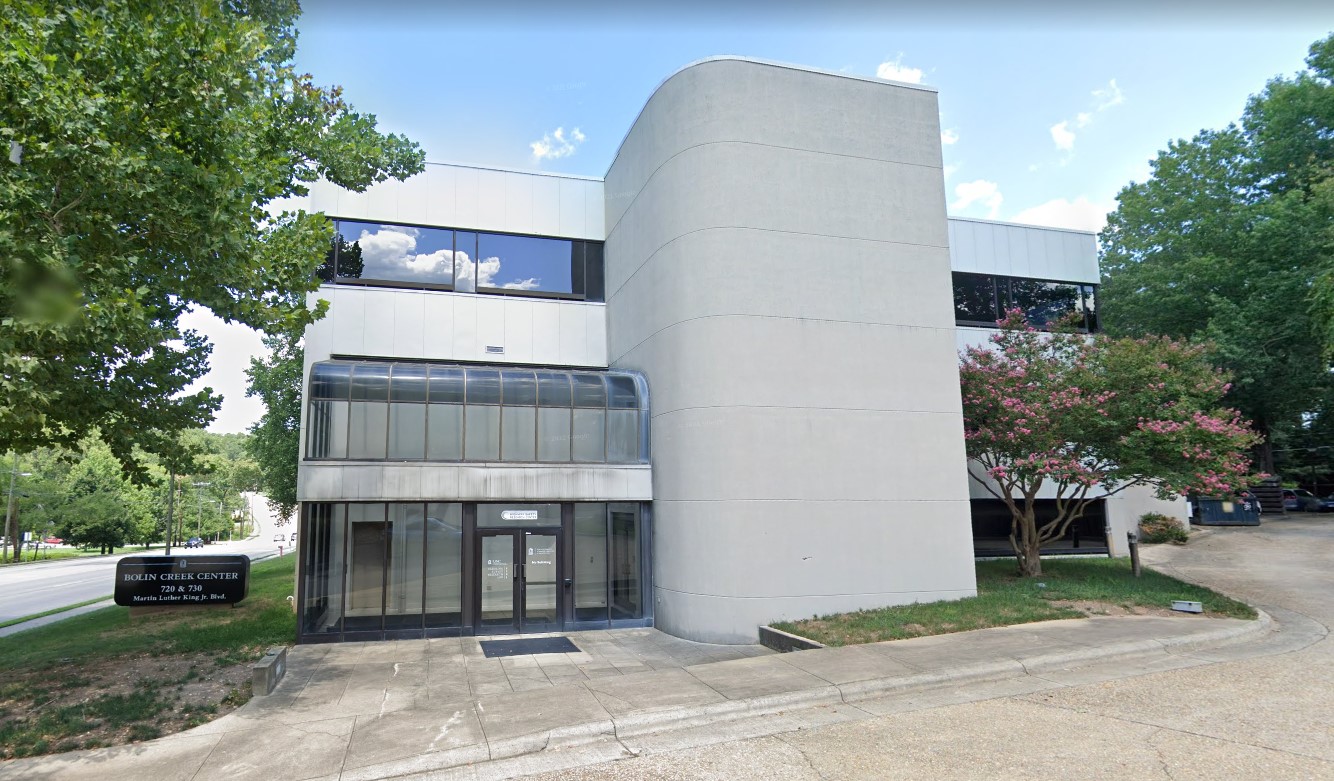
The Bolin Creek Center, which are two separate office buildings uphill from the intersection of Martin Luther King Jr. Boulevard and Hillsborough Street, have been up for sale by UNC. (Photo via Google.)
Keesmaat said that initial discussions with UNC revealed the university would market the property based on the framework established by the town – essentially telling any developers the aspiration for how the growth would fit with the rest of the area and future projects.
Council members also voiced support for a larger, eventual project at the land near the Parkline building. Keesmaat and Economic Development Director Dwight Bassett described the land as having “momentum” since its ownership company had identified several developers who want to work with the town’s strategies. Bassett described 21 of the 36 acres between Fordham Boulevard and Old Chapel Hill Road as being for sale and garnering outside interest.
For development near the Timberlyne shopping center, Keesmaat said the town likely need to take lead on drumming up interest for outside partners. Council members expressed that timeline and existing constraints fit less well with their ambitions to select and proceed with a pilot project, compared to the Parkline land.
There was a fifth potential development site on the list that the steering committee gave no ranking: the town-owned land off Legion Road, which also set to be discussed by the town council on December 7. The property is being recommended by a committee of town leaders for a site of affordable housing and an expansion of Ephesus Park. During the presentation on November 30, however, Keesmaat said she believed a lack of consensus among Chapel Hill Town Council members and some differing thoughts from nearby residents would give the pilot project more “contention” than desired.
Council Member Paris Miller-Foushee said she was disappointed to not see the site ranked with the others, believing it to be a “viable” opportunity.
“If we were to take it through this criteria,” she said, “I think it would be number one on this list in terms of checking all the boxes [for what we’re seeking]. And contentious for whom is the question for me.”
No formal decision on the Legion Road property’s future has been made yet. Town Council members will discuss and consider approving recommendations from the local government’s Legion Property Committee during Wednesday night’s meeting.
The town council will also formally choose its development project, as well as consider the greenway plan Keesmaat presented earlier on November 30. Council Member Jess Anderson said, however, that no matter the officials’ selection, she will be voting for the project she believes will signify the town’s move in a new direction of planning.
“The criteria that I would weigh the most strongly is how successful we could be with aligning with Complete Community and really meeting those goals,” said Anderson. “Doing something transformative, doing something that rebuilds trust in a lot of different ways.”
Photo via Town of Chapel Hill.
Chapelboro.com does not charge subscription fees, and you can directly support our efforts in local journalism here. Want more of what you see on Chapelboro? Let us bring free local news and community information to you by signing up for our biweekly newsletter.



